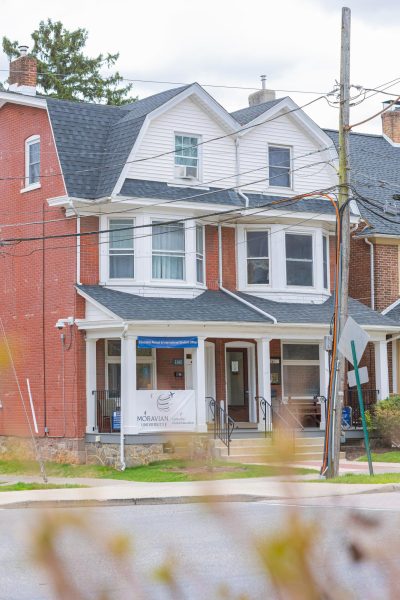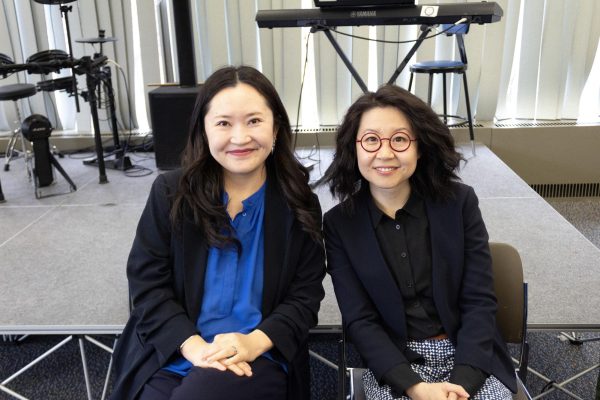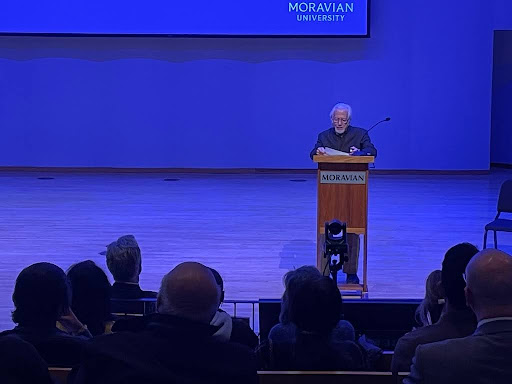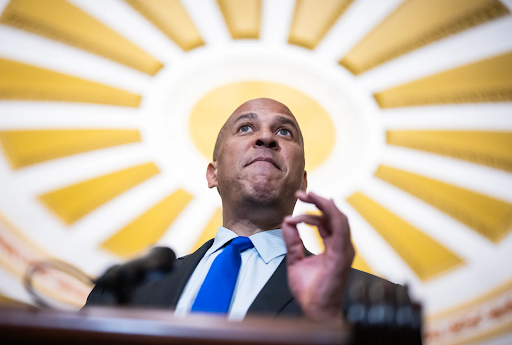A Sense of Place, Part II: “Reading” the Hotel Bethlehem

Photo Courtesy of Connor Griffon
Sitting on a bench in front of the Moravian Book Shop, I looked across the street at the impressive Hotel Bethlehem, an engineering marvel of the time that was financed by Charles Schwab, an American steel magnate and the founder of Bethlehem Steel.
The hotel sits several stories high in order to accommodate over 120 rooms within a small area of Main Street. The exterior of the first story of the building consists of a series of decorative arches (arcades) adorned with a keystone above them. The keystones, a symbol of Pennsylvania, situate the hotel into the fabric of the Pennsylvania state discourse community, a group that shares common ideologies, goals, values, and beliefs.
As I look up at the Hotel Bethlehem, each successive story adds to the building’s magnificence and enormity. Its light-brown facade of brick, a material reserved for the wealthy, was a sign of an evolving society taking root in Bethlehem at the time of its construction and created a sense of fortitude and strong structural integrity. The looming awning over the front entrance is affixed with decorative lighting, as are the arches, which produces a glow and sense of welcoming for the guests. The gold color trim surrounding the awning, as well as the gold circular inlays therein, lends a regalness to the building.

In addition, the black cast iron chairs and tables with bright red umbrellas located on the sidewalk along the perimeter of the hotel serve as equipment not only for the hotel guests, but for the public itself. While the intended purpose of these tables and chairs is specifically to cater to the guests of the Hotel Bethlehem, by virtue of their placement on a public sidewalk, the public discourse community is able to take advantage of these amenities, as well.
As a corporation, the Hotel Bethlehem’s primary purpose is to serve its guests. However, as a core historic landmark of Bethlehem, the hotel’s impact extends beyond its current patrons.
The Hotel Bethlehem was initially designed to host many guests visiting the Lehigh Valley area – guests from various discourse communities traveling for business or pleasure.
As a hotel, the rooms and amenities therein are merely spaces and serve no specific purpose to the guest until they received their room key. Indeed, this room key functions to convert this “space” into a “place” by unlocking the hotel room door, allowing the guests to place/unpack their luggage and personal belongings inside, and granting them the opportunity to form memories of a lifetime.
Over time, the hotel’s grandiosity (which has served as a symbol of innovation and progress) attracted many well-known and powerful people throughout the world, such as Winston Churchill, Dwight Eisenhower, and Amelia Earhart.
This well-connected discourse community inspired other less influential discourse communities to frequent the Hotel Bethlehem, in turn reinforcing the Hotel Bethlehem’s success and air of wealth and prosperity.
Over time, the Hotel Bethlehem became a revered place in the Lehigh Valley discourse community as a result of the abundance of visitors, both famous and unknown.
The hotel itself has provided a forum for many rhetorical situations, that is, any circumstance in which one person is able to communicate with another and is in a position to share ideas. Those include family reunions, celebrations of birthdays and special anniversaries, gatherings of friends and family, as well as critical business meetings impacting people both at the individual and group discourse community level.
For example, President Eisenhower conducted a meeting at the Hotel Bethlehem in the 1950s in an attempt to end a Bethlehem Steel strike and restore vital steel production in the United States. Through this rhetorical situation in which mediation and high-level conversations occurred between the Bethlehem Steel employee discourse community and the Bethlehem Steel executive discourse community/United States government, an agreement was reached in the steel strike conflict, thereby averting a national steel shortage.






